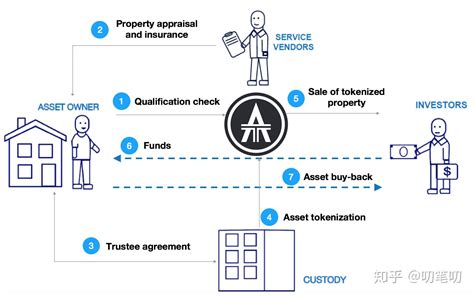Title: Exploring Transactional Possibilities in Blockchain Technology
Blockchain technology has revolutionized numerous industries by introducing decentralized and secure transactional capabilities. From finance to supply chain management, its applications are diverse and promising. Let's delve into the various transactional behaviors facilitated by blockchain technology across different sectors:
Financial Transactions:
Blockchain enables peertopeer (P2P) financial transactions without the need for intermediaries like banks. Cryptocurrencies like Bitcoin and Ethereum utilize blockchain for secure and transparent transactions. These transactions include:
1.
Payment Transactions:
Users can send and receive cryptocurrencies as a form of payment for goods and services, both online and offline.2.
CrossBorder Transactions:
Blockchain eliminates the need for traditional banking systems in crossborder transactions, reducing costs and transaction times significantly.3.
Smart Contracts:
These selfexecuting contracts automate and enforce the negotiation and performance of agreements, enabling trustless transactions between parties.
Supply Chain Management:
Blockchain enhances transparency and traceability in supply chains, reducing fraud and ensuring authenticity. Transactional behaviors in this sector include:
1.
Product Tracking:
Each step in the supply chain, from production to delivery, is recorded on the blockchain, providing an immutable record of the product's journey.2.
Provenance Verification:
Consumers can verify the authenticity and origin of products, such as luxury goods or organic produce, by accessing the blockchain records.3.
Payment Settlement:
Smart contracts facilitate automatic payment settlements between parties based on predefined conditions, streamlining the payment process.Intellectual Property Rights:
Blockchain technology can revolutionize how intellectual property (IP) rights are managed and enforced. Transactional behaviors in this domain include:
1.
Digital Rights Management:
Blockchain enables secure distribution and management of digital content, ensuring creators receive fair compensation for their work.2.
Royalty Payments:
Smart contracts can automate royalty payments to content creators based on usage or sales, eliminating the need for intermediaries and reducing disputes.3.
Proof of Ownership:
Blockchain provides an immutable record of ownership for creative works, such as music, art, and literature, preventing unauthorized use or duplication.Voting Systems:
Blockchainbased voting systems offer transparency, security, and tamperproof records. Transactional behaviors in this context include:
1.
Secure Voting:
Each vote is recorded as a transaction on the blockchain, ensuring its integrity and preventing tampering or manipulation.2.
Anonymous Voting:
While transactions are public, voters' identities remain anonymous, ensuring privacy and confidentiality.3.
Immutable Records:
The decentralized nature of blockchain ensures that voting records cannot be altered or deleted, enhancing trust in the electoral process.In conclusion, blockchain technology has the potential to transform various transactional behaviors across industries, ranging from finance and supply chain management to intellectual property rights and voting systems. By leveraging its decentralized, transparent, and secure nature, businesses and organizations can streamline operations, reduce costs, and enhance trust and accountability in transactions.
Would you like to explore any specific aspect further?
标签: 区块链交易是没有顺序的这个说法 区块链交易有没有顺序 区块链可以做什么的技术中介 区块链可以应用到哪些行业 区块链交易运行的顺序






